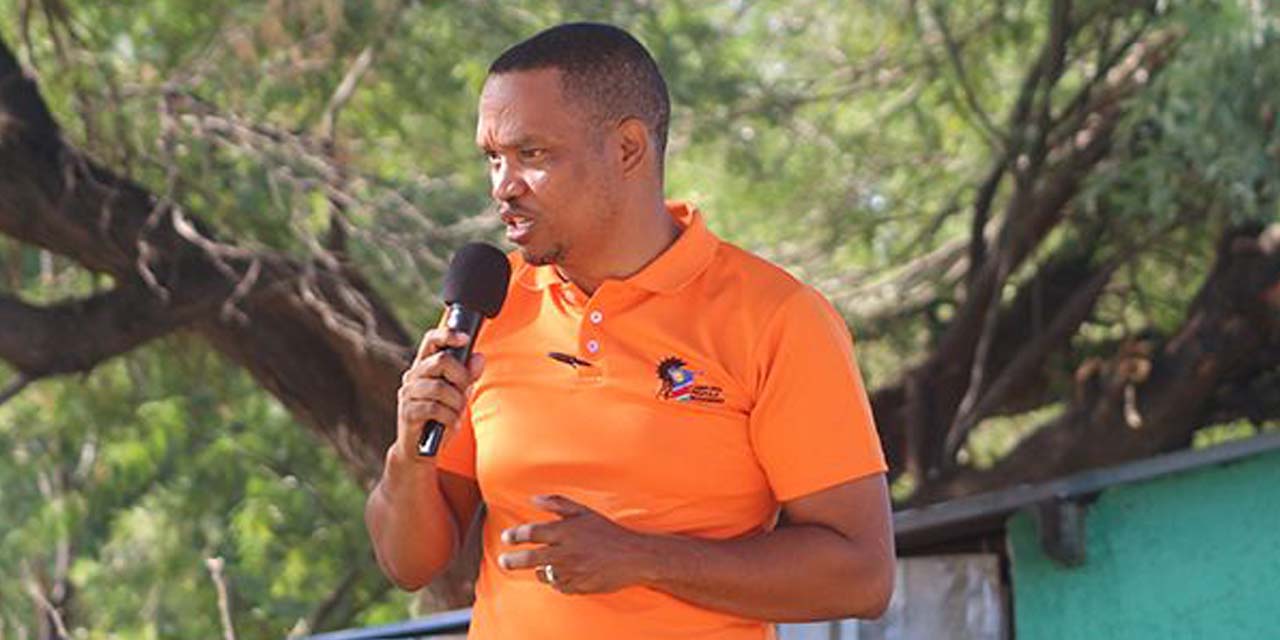Andrew Kathindi
Landless People’s Movement (LPM) Leader, Bernardus Swartbooi, is questioning the decision of the Government on stricter regulations stating that it has not been proven that lockdown has helped curb the spread of COVID-19.
The new regulations, which came into effect at midnight on 1 July until 15 July, are meant to stop the further spread of COVID-19 as Namibia grapples with the reality of a fierce third wave. The LPM Leader, however, argues that the Government has no basis to measure or declare the regulations as successful.
“1524 deaths and people are claiming that the lockdown has been successful. I don’t know how, on what basis was it successful. Did you project maybe 4000 deaths, and we were experienced 1500? Did you projected maybe 200,000 infections and we’ve got 89,000? What is the measurement of success in this instance?
LPM, and Popular Democratic Movement (PDM) Leader, McHenry Venaani, last year stated that they did not support the state of emergency under which lockdowns were enforced.
The state of emergency was then replaced last September by the new regulations, which are enforced under the Public and Environmental Health Act of 2015. “The lockdown is unscientific. It is not an evidence based approach. President associate what specifically they will do.”
Under the new regulations, which have restricted the movement of people between regions, the country has been divided into ten zones. No travel is permitted between these zone, although travel within each is allowed, while returning residents, essential service providers, emergency medical cases and transportation of human remains for burial purposes, will be permitted entry and exit into the various zones, with the relevant permit.
COVID-19 cases have continued to rise in recent weeks, despite Government’s efforts to curb the spread of the pandemic, with the country recording over 1500 cases on average a day.
President Hage Geingob has been justifying the necessity of the lockdown. “In order to suppress further transmission of the virus, we are taking the difficult but necessary measure to extend the restriction in travel, to all regions,” Geingob says.
“I have always reiterated that the health of Namibians remains the first priority and a balance must therefore be found in protecting life and livelihoods. While a full social and economic lockdown is proven to be effective in slowing transmission rates, it must be used sparingly, as it also spurs adverse effects to economy, business jobs and livelihoods. Under the current circumstances facing our country, this difficult step must be taken.”
Finance Minister, Ipumbu Shiimi, says the Government was learning from previous lockdowns and was no longer restricting economic activities as it earlier had. “These restrictions that were introduced were carefully considered. It was a striking of a balance to save lives and to save livelihoods,” says Shiimi.
“Most of the restrictions are restricting mobility but we are allowing the economic activities to continue.” On Wednesday, 30 June, Namibia recorded 1291 new infection, taking the cumulative COVID-19 cases reported to over 90 000 with 91 208 recorded cases. The country has recorded 1556 today deaths due to COVID-19.




